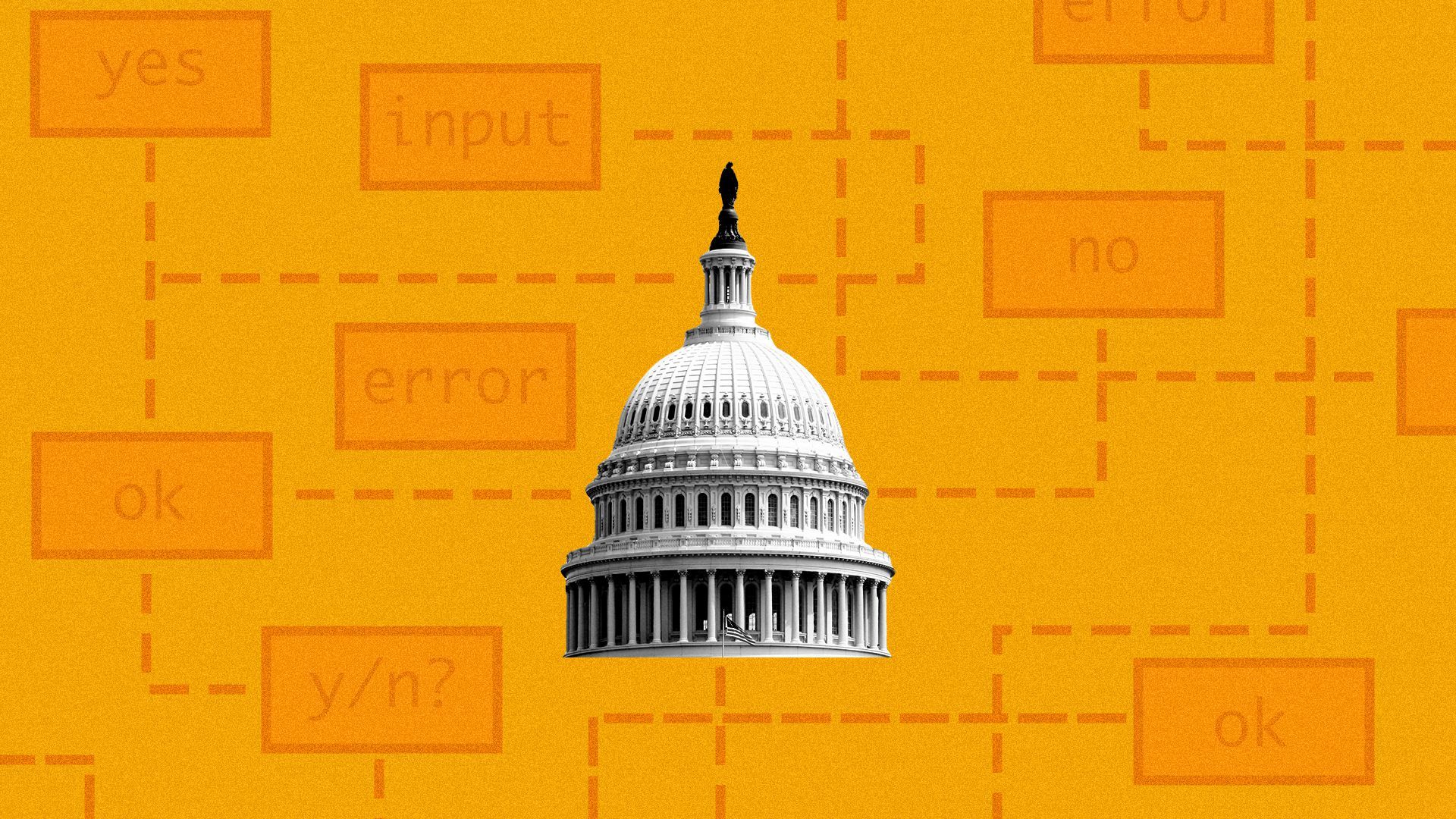Exclusive: New bipartisan bill takes aim at algorithms

- Ashley Gold, author ofAxios Pro: Tech Policy

Illustration: Sarah Grillo/Axios
A bipartisan group of House lawmakers has introduced a bill that would require online platforms to let users opt out of having personal data-driven algorithms select the content they see, according to a copy of the text shared exclusively with Axios.
Driving the news: Recent revelations about Facebook's internal research findings have renewed lawmaker interest in bills that seek to give people more of a say in how algorithms shape their online experiences.
Why it matters: The bill shows that anger over how platforms use their algorithms to target users with specialized content is a bipartisan issue with momentum on Capitol Hill.
- The algorithms that personalize content on social networks and other apps can make services addictive, violate users' privacy and promote extremism, critics and many lawmakers argue. Conservatives have also claimed that services deliberately censor their speech.
What's happening: The Filter Bubble Transparency Act would require internet platforms to let people use a version of their services where content is not selected by "opaque algorithms" driven by personal data. It's sponsored by Reps. Ken Buck (R-Colo.), David Cicilline (D-R.I.), Lori Trahan (D-Mass.) and Burgess Owens (R-Utah).
- The Senate version of the bill, also bipartisan, is sponsored by Sen. John Thune (R-S.D.), an influential member of Republican leadership. Buck and Cicilline are the bipartisan duo responsible for passing six antitrust bills out of the House Judiciary committee in June.
- Buck and Thune plan to work together on tech and antitrust issues going forward, a Republican aide told Axios. That could boost the chances of such bills passing muster with Senate Republicans in the future.
What they're saying: "Consumers should have the option to engage with internet platforms without being manipulated by secret algorithms driven by user-specific data," said Buck.
- Cicilline said: "Facebook and other dominant platforms manipulate their users through opaque algorithms that prioritize growth and profit over everything else. And due to these platforms’ monopoly power and dominance, users are stuck with few alternatives to this exploitative business model, whether it is in their social media feed, on paid advertisements, or in their search results."
Flashback: Last month, Democrats on the House Energy and Commerce committee introduced a bill that would remove online platforms' protection from content liability if they used algorithmic ranking to deliver content that caused harm.
Details: The bill would exempt smaller companies with fewer than 500 employees, those with annual gross receipts lower than $50,000,000 in the last three-year-period, and those that gather data on fewer than one million users annually.
Yes, but: Legislative days in 2021 are running out as Democratic lawmakers scramble to pass President Biden's spending bill.
Editor's note: This story has been updated to clarify that the law aims to cover algorithms that select content based on personal data.